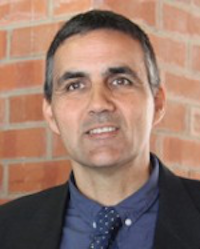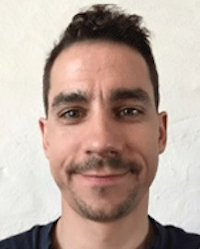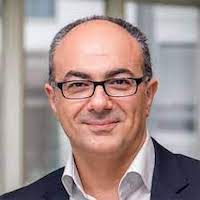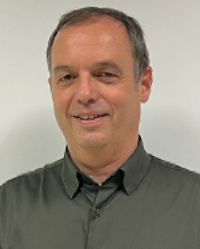2022 IEEE SERVICES - IEEE International Symposium on Software Services Engineering (ISASSE 2022)
2022 IEEE International Symposium on Software Services Engineering (ISASSE 2022)
The second ISASSE is organized as an integral part of 2022 SCC.
Software as a Service provides a general framework to encapsulate the underlying software functionalities as products to fulfill various requirements on the customer side. This general framework allows for modular service requirements decomposition and modular service composition during the development, operation and maintenance and evolution of the encapsulated software functionalities instantiated as services. Next generation of software services will become more context/situation-aware, self-aware and autonomous, ultra-mobile, ultra-fine-grained, ultra-trustworthy and driven by behaviors observed and captured from both the environment and humans of concern. Entering the Internet of Things (IoT) era, data of a variety of modalities can be conveniently and rapidly collected for applying the state-of-the-art techniques cutting across the areas of machine learning, software engineering, pervasive computing, dependable computing, psychophysiological or brain science, autonomics, to name a few, to support cutting-edge applications. Moreover, human-centric concerns are of paramount importance in rendering software services in the IoT era, and must be continually addressed before, during and after deployment of the applications in view of the emergent and unavoidable ambiguities and uncertainties in the environments and from the end-users. Such a service-centric software endeavor brings about a new field of study hereby named Software Service Engineering (SSE), which can benefit from the prevalent body of knowledge and professional practice of software engineering methods and tools, as well as advances in other disciplines. In 2022, we will continue feature SSE sessions in the form of a symposium under the umbrella of SCC.
ISASSE 2022 Chairs
Carl K. Chang, Iowa State University
Jordi Marco, Universitat Politècnica de Catalunya
ISASSE Session 1
Panel: Software development methods in the IoT-laden, AI/ML-driven era
Thursday July 14, 10:45-12:00
Room: Theater Room
Panel Chair: Jordi Marco, Universitat Politècnica de Catalunya
In this panel, our panelists will discuss three important and intertwined pillars of modern IoT systems, namely, Software, IoT and AI/ML.
Internet of Things (IoT) systems are increasingly becoming more complex. This increasing complexity has led IoT systems to become heterogeneous in terms of hardware, software, computing capacity and connectivity, among others. Current IoT systems are moving from systems of sensor and other sensing devices that collect large amounts of data to include devices that are able not only to collect, but also to process and make decisions, in real-time. Towards achieving intelligent IoT devices, Artificial Intelligence (AI) technologies and more concretely, Machine Learning (ML) methods, provide powerful capabilities to endow IoT devices with intelligent services, leading to the so-called Artificial Intelligence of Things (AIoT).
In this context, development of next generation of IoT software services must focus on and address issues such as context-awareness, self-adaptability, semantic data integration, reliability, real-time decision-making and human factors, among others. This ISASSE panel will explore new software development methods necessary to meet all these and other emerging challenges in the inter-disciplinary field of software development, IoT and AI/ML.
We encourage the active participation of the congress participants with the panelists' discussions.
Panel Chair
 Jordi Marco received his BSc and
Ph.D. in Informatics from Universitat
Politècnica de Catalunya (UPC). He is an
Associate Professor in Computer Science
at the UPC and member of the Software
and Service Engineering group (GESSI).
He has published more than 50 papers
in international journals and conferences.
He has participated in many R&D competitive projects, some
of them funded by the European Commission. His research interests
include natural language processing, machine learning,
service-oriented computing, quality of service and conceptual
modeling.
Jordi Marco received his BSc and
Ph.D. in Informatics from Universitat
Politècnica de Catalunya (UPC). He is an
Associate Professor in Computer Science
at the UPC and member of the Software
and Service Engineering group (GESSI).
He has published more than 50 papers
in international journals and conferences.
He has participated in many R&D competitive projects, some
of them funded by the European Commission. His research interests
include natural language processing, machine learning,
service-oriented computing, quality of service and conceptual
modeling.
Panelists
 Cecilio Angulo, BSc/MSc in Mathematics
from the University of Barcelona,
Spain and PhD in Sciences from the Universitat
Politècnica de Catalunya (UPC).
Full Professor of Artificial Intelligence
and Robotics at UPC. Founder and former
Head Director of the Research Centre
on Intelligent Data Science and Artificial
Intelligence (IDEAI-UPC). He has worked on theoretical
aspects on machine learning, computer vision and robotics
and on applications on recommender systems, cognitive social
robots and assistive technologies. He has authored books
in machine learning and robotics, and published more than
275 papers in international and national journals and conferences.
He has led and participated in many R&D competitive
projects, most of them funded by the European Commission.
Cecilio Angulo, BSc/MSc in Mathematics
from the University of Barcelona,
Spain and PhD in Sciences from the Universitat
Politècnica de Catalunya (UPC).
Full Professor of Artificial Intelligence
and Robotics at UPC. Founder and former
Head Director of the Research Centre
on Intelligent Data Science and Artificial
Intelligence (IDEAI-UPC). He has worked on theoretical
aspects on machine learning, computer vision and robotics
and on applications on recommender systems, cognitive social
robots and assistive technologies. He has authored books
in machine learning and robotics, and published more than
275 papers in international and national journals and conferences.
He has led and participated in many R&D competitive
projects, most of them funded by the European Commission.
 Christian Berger is Full Professor at
the Department of Computer Science and
Engineering at University of Gothenburg,
Sweden and received his Ph.D. degree
from RWTH Aachen University, Germany
in 2010. He coordinated the project
for the vehicle ”Caroline”, which participated
in the world’s first urban robot race
2007 DARPA Urban Challenge Final. He co-led the Chalmers
Truck Team during the 2016 Grand Cooperative Driving Challenge
(GCDC), and is one of the two leading architects behind
OpenDLV (Open Driverless Vehicle). His research expertise
is on architecting complex and distributed realtime software
systems, micro-services for cyber-physical and IoT-systems,
and continuous integration/deployment/experimentation.
Christian Berger is Full Professor at
the Department of Computer Science and
Engineering at University of Gothenburg,
Sweden and received his Ph.D. degree
from RWTH Aachen University, Germany
in 2010. He coordinated the project
for the vehicle ”Caroline”, which participated
in the world’s first urban robot race
2007 DARPA Urban Challenge Final. He co-led the Chalmers
Truck Team during the 2016 Grand Cooperative Driving Challenge
(GCDC), and is one of the two leading architects behind
OpenDLV (Open Driverless Vehicle). His research expertise
is on architecting complex and distributed realtime software
systems, micro-services for cyber-physical and IoT-systems,
and continuous integration/deployment/experimentation.
 Schahram Dustdar (in-person participation) is Full Professor of Computer Science heading the
Research Division of Distributed Systems at the TU Wien, Austria. He
holds several honorary positions: University of California (USC) Los
Angeles; Monash University in Melbourne, Shanghai University, Macquarie
University in Sydney, University Pompeu Fabra, Barcelona, Spain. From
Dec 2016 until Jan 2017 he was a Visiting Professor at the University of
Sevilla, Spain and from January until June 2017 he was a Visiting
Professor at UC Berkeley, USA.
Schahram Dustdar (in-person participation) is Full Professor of Computer Science heading the
Research Division of Distributed Systems at the TU Wien, Austria. He
holds several honorary positions: University of California (USC) Los
Angeles; Monash University in Melbourne, Shanghai University, Macquarie
University in Sydney, University Pompeu Fabra, Barcelona, Spain. From
Dec 2016 until Jan 2017 he was a Visiting Professor at the University of
Sevilla, Spain and from January until June 2017 he was a Visiting
Professor at UC Berkeley, USA.
From 1999 – 2007 he worked as the co-founder and chief scientist of
Caramba Labs Software AG in Vienna (acquired by Engineering NetWorld
AG), a venture capital co-funded software company focused on software
for collaborative processes in teams. Caramba Labs was nominated for
several (international and national) awards: World Technology Award in
the category of Software (2001); Top-Startup companies in Austria
(CapGemini Ernst & Young) (2002); MERCUR Innovation award of the
Austrian Chamber of Commerce (2002). He is co-founder of edorer.com
(USA) and sinoaus.net (based in Nanjing, China), where he is the
chief-scientist.
He is founding co-Editor-in-Chief of ACM Transactions on Internet of
Things (ACM TIoT) as well as Editor-in-Chief of Computing (Springer). He
is an Associate Editor of IEEE Transactions on Services Computing, IEEE
Transactions on Cloud Computing, ACM Computing Surveys, ACM Transactions
on the Web, and ACM Transactions on Internet Technology, as well as on
the editorial board of IEEE Internet Computing and IEEE Computer.
Dustdar is recipient of multiple awards: IEEE TCSVC Outstanding
Leadership Award (2018), IEEE TCSC Award for Excellence in Scalable
Computing (2019), TCI Distinguished Service Award 2021 by the IEEE
Technical Committee on the Internet (TCI) (2021), ACM Distinguished
Scientist (2009), ACM Distinguished Speaker (2021), IBM Faculty Award
(2012). He is an elected member of the Academia Europaea: The Academy of
Europe, where he is chairman of the Informatics Section, as well as an
IEEE Fellow (2016) and an Asia-Pacific Artificial Intelligence
Association (AAIA) Fellow and President (2021).
 Ernest Teniente is a Full Professor in
the Department of Services and Information
Systems Engineering at the Universitat
Politècnica de Catalunya. He is
the Director of inLab FIB, the innovation
laboratory of the Facultat d’Inform`atica
de Barcelona (https://inlab.fib.upc.edu/en)
and also the head of the Information
Modeling and Processing (IMP) research group (https://imp.
upc.edu/en). He has been a visiting researcher at the Politecnico
di Milano and at the Universitá di Roma Tre,
in Italy. His research focuses on the area of knowledge
and service engineering, on topics such as the specification
of ontologies and semantic reasoning, integrity constraints
enforcement, business processes modeling or the automatic
generation of code from ontologies. He has authored more
than 100 publications in prestigious international journals and
conferences. He serves as a coordinator in several national and
international research projects and he regularly participates in
the Program Committees of international conferences and acts
as a reviewer of some of the most renowned journals in his
areas of expertise. He has also held various responsibilities in
conference organizing committees and program committees.
Ernest Teniente is a Full Professor in
the Department of Services and Information
Systems Engineering at the Universitat
Politècnica de Catalunya. He is
the Director of inLab FIB, the innovation
laboratory of the Facultat d’Inform`atica
de Barcelona (https://inlab.fib.upc.edu/en)
and also the head of the Information
Modeling and Processing (IMP) research group (https://imp.
upc.edu/en). He has been a visiting researcher at the Politecnico
di Milano and at the Universitá di Roma Tre,
in Italy. His research focuses on the area of knowledge
and service engineering, on topics such as the specification
of ontologies and semantic reasoning, integrity constraints
enforcement, business processes modeling or the automatic
generation of code from ontologies. He has authored more
than 100 publications in prestigious international journals and
conferences. He serves as a coordinator in several national and
international research projects and he regularly participates in
the Program Committees of international conferences and acts
as a reviewer of some of the most renowned journals in his
areas of expertise. He has also held various responsibilities in
conference organizing committees and program committees.
ISASSE Session 2
Software Services Engineering with Blockchain
Thursday July 14, 12:00-13:00
Room: Theater Room
Session Chair: Jordi Marco, Universitat Politècnica de Catalunya
SSE_SYM_0658A Comparative Analysis of Proof-of-Authority Consensus Algorithms: Aura vs. Clique
Md. Mainul Islam, Mpyana Mwamba Merlec and Hoh In
SSE_SYM_4811
Data Marketplaces with a Free Sampling Service
Rafael Genés-Durán, Oscar Esparza, Juan Hernández-Serrano, Fernando Román-García, Miquel Soriano, Achille Zappa, Martin Serrano, Susanne Stahnke, Birthe Böhm, Edgar Fries, Vasiliki Koniakou, Bruno Michel and Jose L. Muñoz-Tapia
SSE_SYM_9889
Decentralized Electronic Voting System using Hyperledger Fabric
Aneta Poniszewska-Maranda, Stanisław Rojek and Michał Pawlak